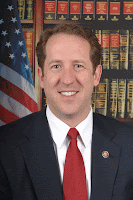Feb. 1. Lee Kumke
Feb 1 Sherri Lynn
Feb. 2. Dale Myers, Rebecca Kearney
Feb. 2 Olivia Cox (6)
Feb. 4. Seth Wengler , Lora Premer
Feb. 5. Marlys Kort, John Meyer
Feb 5. Charles Hoit
Feb. 6. Joe Hubl, Brooke Schmidt
Feb.6. Doris Martin, Brenda Trumble
Feb. 7. Craig Strasburg, Linda Waechter
Feb. 7. Dakota Lovett and Montanna Lovett
Feb. 8. Dick Schmidt
Feb. 10. Dewey Lienemann, Lee Wright
Feb. 15. Tom Schmidt, Sarah Weddingfeld
Feb. 15. Fred Hesman, Rochelle A. Seeman
Feb. 15. Cassie Henderson
Feb. 16. Mary Tenhoff, Evart Barton
Feb 1 Sherri Lynn
Feb. 2. Dale Myers, Rebecca Kearney
Feb. 2 Olivia Cox (6)
Feb. 4. Seth Wengler , Lora Premer
Feb. 5. Marlys Kort, John Meyer
Feb 5. Charles Hoit
Feb. 6. Joe Hubl, Brooke Schmidt
Feb.6. Doris Martin, Brenda Trumble
Feb. 7. Craig Strasburg, Linda Waechter
Feb. 7. Dakota Lovett and Montanna Lovett
Feb. 8. Dick Schmidt
Feb. 10. Dewey Lienemann, Lee Wright
Feb. 15. Tom Schmidt, Sarah Weddingfeld
Feb. 15. Fred Hesman, Rochelle A. Seeman
Feb. 15. Cassie Henderson
Feb. 16. Mary Tenhoff, Evart Barton
Feb. 17. Duane Delay
Feb. 18. Marcia Woods
Feb. 20. Lloyd Post,
Feb. 20 Elaine Soucie
Feb. 21 Stephanie Ruybalid
Feb. 22. Margie VanBoening,
Feb. 22 Dennis Henderson, Todd Meents
Feb. 22 Sylvia Alber , Verlin Rose
Feb. 27. Sue Toepher,
Feb. 27. Rose Kelley & Thad Kelley
Feb. 28. Brenda Piel, Jean Krueger
Feb. 28 Nila Gartner, Bonnie Stertz
Feb. 18. Marcia Woods
Feb. 20. Lloyd Post,
Feb. 20 Elaine Soucie
Feb. 21 Stephanie Ruybalid
Feb. 22. Margie VanBoening,
Feb. 22 Dennis Henderson, Todd Meents
Feb. 22 Sylvia Alber , Verlin Rose
Feb. 27. Sue Toepher,
Feb. 27. Rose Kelley & Thad Kelley
Feb. 28. Brenda Piel, Jean Krueger
Feb. 28 Nila Gartner, Bonnie Stertz









